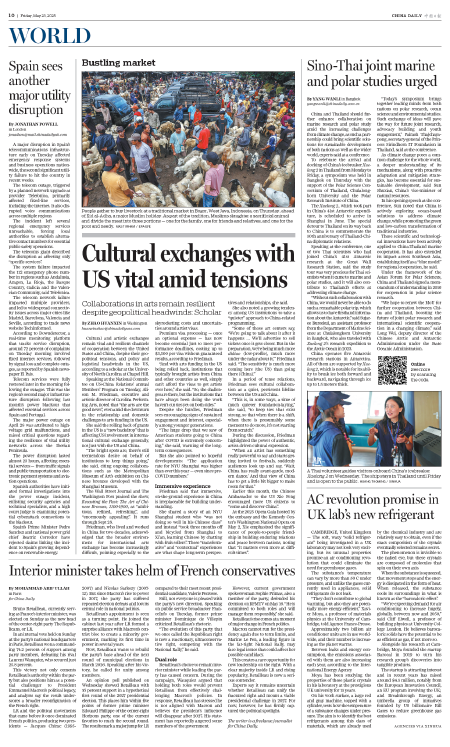CAMBRIDGE, United Kingdom — The soft, waxy "solid refrigerant" being investigated in a UK laboratory may not look very exciting, but its unusual properties promise an air conditioning revolution that could eliminate the need for greenhouse gases.
The substance's temperature can vary by more than 50 C under pressure, and unlike the gases currently used in appliances, solid refrigerants do not leak.
"They don't contribute to global warming, but also they are potentially more energy efficient," Xavier Moya, a professor of materials physics at the University of Cambridge, told Agence France-Presse.
Approximately two billion air conditioner units are in use worldwide, and their number is increasing as the planet warms.
Between leaks and energy consumption, the emissions associated with them are also increasing each year, according to the International Energy Agency.
Moya has been studying the properties of these plastic crystals in his laboratory at the prestigious UK university for 15 years.
On his work surface, a large red and gray machine, topped with a cylinder, tests how the temperature of a substance changes under pressure. The aim is to identify the best refrigerants among this class of materials, which are already used by the chemical industry and are relatively easy to obtain, even if the exact composition of the crystals eventually selected remains secret.
The phenomenon is invisible to the naked eye, but these crystals are composed of molecules that spin on their own axis.
When the substance is squeezed, that movement stops and the energy is dissipated in the form of heat. When released, the substance cools its surroundings in what is known as the "barocaloric effect".
"We're expecting demand for air conditioning to increase hugely, globally, between now and 2050," said Cliff Elwell, a professor of building physics at University College London. He believes barocaloric solids have the potential to be as efficient as gas, if not more so.
Alongside his research at Cambridge, Moya founded the startup Barocal in 2019 to turn his research group's discoveries into tangible products.
The startup is attracting interest and in recent years has raised around $4.5 million, notably from the European Innovation Council, an EU program involving the UK; and Breakthrough Energy, an umbrella group of initiatives founded by US billionaire Bill Gates to reduce greenhouse gas emissions.

